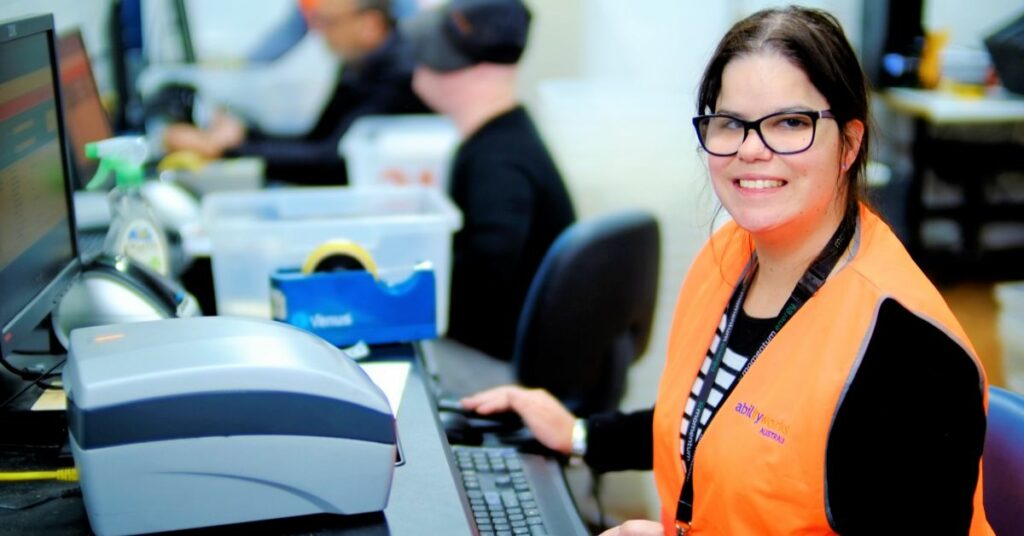I was 19 years old when I found myself on the job-hunting merry-go-round.
Having finished school and completed a Cert IV in Library Information and Cultural Services, I was ready to do what most people my age were doing, and get out there in the big world and find myself a job.
But it didn’t quite work out for me like it did most other people. You see, I have an intellectual disability. But what so many employers fail to see is that I, and so many others like me, would be an asset to their workplace if they’d just give us a chance.
My parents knew pretty early on that I was facing certain challenges. I have a twin sister and while she was hitting all the developmental milestones as expected, I wasn’t.
I still recall as babies, my sister had started walking before me and she would pull my hand up to try to get me to walk with her.
It turned out I had excess fluid on my brain and had to get a shunt put in to help drain it. I found school pretty tough, and then high school was even worse, as you can you imagine. After high school, I also got diagnosed with autism, and I remember thinking: “That explains a lot.”
With school and my studies done and dusted, I was so ready to enter the workforce. But I spent six long years searching for a job and finding no one who was willing to give me a shot.
I was applying for around 20 jobs a week. Rarely get an interview and often not hearing back at all. It was so discouraging.
I knew I had so much to offer: I‘m willing to learn, I’m a good people person, I’m a good communicator, I’m quite fast at picking things up once I’m shown and I’m always punctual.
These are all qualities employers say they desire. But how was I ever going to prove myself fit for work if I was never given an opportunity?
This is a conundrum that many people with disabilities face. I felt so dejected, but I didn’t give up. I was determined to get a job, and to be a contributing member of the community. I just yearned to be like everyone else who gets up in the morning and goes to work.
Fortunately, in 2018 I was referred to Ability Works, a social enterprise providing purposeful employment for people living with a disability or facing significant barriers to employment.
This changed everything for me. The staff there were able to assess what I was good at, which tasks would best suit me, and what I liked doing. Their focus was on ability not disability.
For me, this was always about more than just getting a job. I finally felt like I’d gained my independence. It also gave me that sense of being part of a community, having somewhere to go every day where I not only get to work and learn new skills but get to have social interaction with my peers.
Five years on, and I’ve now been promoted to the role of Team Leader. Something I’m really proud of. This role has also been the stepping stone to other opportunities. In 2020 I got an internship at my local council, where I have been working part-time as a Civic Events Support Officer ever since.
It just goes to show that all it takes is just one door to open, one person to give you a chance and it can make all the difference. But while those days of endless job searching seem like a lifetime ago for me now, there are still so many Australians with a disability in that same position.
Finding employment has so many benefits for people with a disability but there are just as many benefits for the companies that employ them. People with disabilities often have unique perspectives, skills, and talents that would make them an asset to any company.
But most importantly, employing people with disabilities promotes diversity and inclusion in the workplace.
It sends a clear message that the company values and respects people of all abilities. This can lead to a more positive and inclusive work culture, which can improve employee morale and productivity.
Ruby Gray is an Employee Team Leader at Ability Works, a social enterprise providing purposeful employment to people with barriers to work.
Ruby has intellectual disabilities and is passionate about advocating for her peers and urges employers to focus on ability not disability to create inclusive workplaces.
- This author does not have any more posts.











